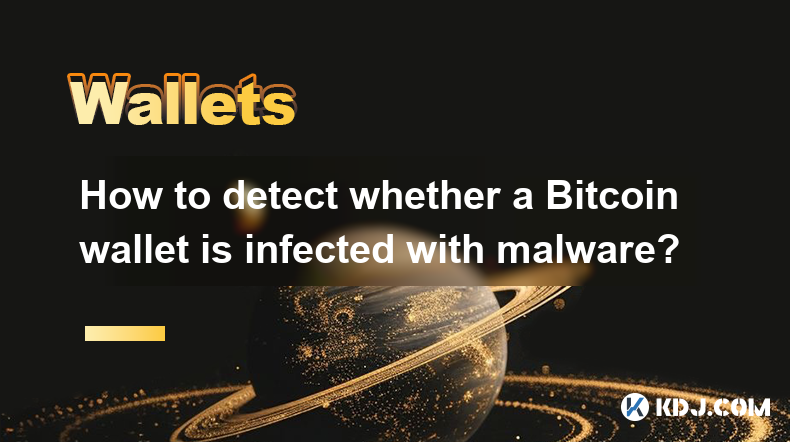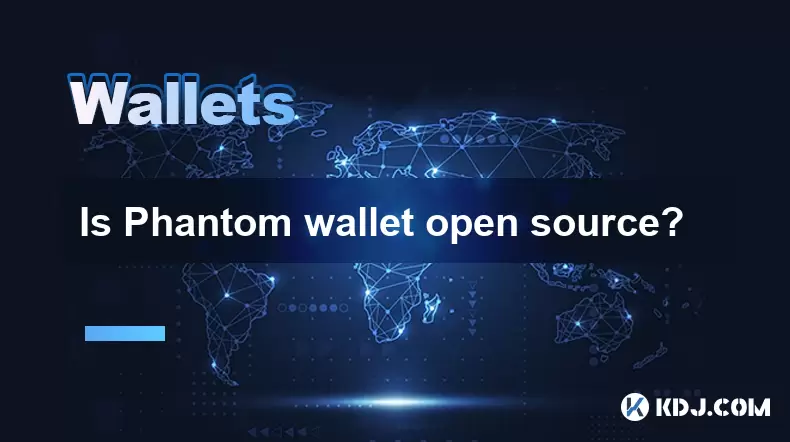-
 Bitcoin
Bitcoin $108,017.2353
-0.81% -
 Ethereum
Ethereum $2,512.4118
-1.58% -
 Tether USDt
Tether USDt $1.0002
-0.03% -
 XRP
XRP $2.2174
-1.03% -
 BNB
BNB $654.8304
-0.79% -
 Solana
Solana $147.9384
-1.76% -
 USDC
USDC $1.0000
-0.01% -
 TRON
TRON $0.2841
-0.76% -
 Dogecoin
Dogecoin $0.1636
-2.09% -
 Cardano
Cardano $0.5726
-1.72% -
 Hyperliquid
Hyperliquid $39.1934
1.09% -
 Sui
Sui $2.9091
-0.59% -
 Bitcoin Cash
Bitcoin Cash $482.1305
0.00% -
 Chainlink
Chainlink $13.1729
-1.54% -
 UNUS SED LEO
UNUS SED LEO $9.0243
-0.18% -
 Avalanche
Avalanche $17.8018
-1.90% -
 Stellar
Stellar $0.2363
-1.69% -
 Toncoin
Toncoin $2.7388
-3.03% -
 Shiba Inu
Shiba Inu $0.0...01141
-1.71% -
 Litecoin
Litecoin $86.3646
-1.98% -
 Hedera
Hedera $0.1546
-0.80% -
 Monero
Monero $311.8554
-1.96% -
 Dai
Dai $1.0000
-0.01% -
 Polkadot
Polkadot $3.3473
-2.69% -
 Ethena USDe
Ethena USDe $1.0001
-0.01% -
 Bitget Token
Bitget Token $4.3982
-1.56% -
 Uniswap
Uniswap $6.9541
-5.35% -
 Aave
Aave $271.7716
0.96% -
 Pepe
Pepe $0.0...09662
-1.44% -
 Pi
Pi $0.4609
-4.93%
How to detect whether a Bitcoin wallet is infected with malware?
Protect your Bitcoin wallet by regularly updating software, verifying software integrity, using strong security software, and monitoring transaction history for unauthorized activity.
Mar 20, 2025 at 05:15 am

Key Points:
- Understanding the Vectors of Malware Infection for Bitcoin Wallets
- Recognizing Suspicious Wallet Behavior
- Verifying Wallet Software Integrity
- Utilizing Security Software and Practices
- Monitoring Transaction History for Anomalies
- Regularly Updating Wallet Software and Operating System
How to Detect Whether a Bitcoin Wallet is Infected with Malware?
Malware targeting Bitcoin wallets is a significant threat. Criminals seek to steal your private keys, leading to the loss of your cryptocurrency. Detecting an infected wallet requires vigilance and a proactive security approach. This article explores various methods to identify potential malware infestations in your Bitcoin wallet.
Understanding the Vectors of Malware Infection for Bitcoin Wallets:
Malware can infiltrate your Bitcoin wallet through various means. Phishing emails containing malicious links or attachments are a common method. Downloading infected wallet software from untrusted sources also poses a risk. Compromised websites or applications can secretly install malware onto your device, potentially affecting your wallet. Keeping your operating system and software updated is crucial to mitigate vulnerabilities.
Recognizing Suspicious Wallet Behavior:
A compromised wallet may exhibit unusual behavior. Unexpected transactions, unauthorized withdrawals, or alterations to your wallet's settings should raise immediate concerns. If your wallet displays unusually high CPU or memory usage, it might indicate malicious activity running in the background. Any unexpected pop-ups or prompts requesting sensitive information should be treated with extreme caution.
Verifying Wallet Software Integrity:
Always download your Bitcoin wallet software from the official website. Verify the digital signature of the downloaded file to ensure its authenticity. Use a reputable antivirus program to scan the downloaded file before installation. Be wary of unofficial sources or modified versions of the software, as these could contain malicious code.
Utilizing Security Software and Practices:
Employing robust security software is essential. Install a reputable antivirus and anti-malware program on your device and keep it updated. Use a firewall to control network traffic and block suspicious connections. Enable two-factor authentication (2FA) on your wallet whenever possible, adding an extra layer of security. Regularly back up your wallet data to a secure, offline location.
Monitoring Transaction History for Anomalies:
Regularly review your Bitcoin wallet's transaction history. Look for any unauthorized transactions or unusual activity. If you notice any suspicious transactions, immediately secure your wallet and investigate the incident. Contact your wallet provider's support team if you suspect a breach. Keep detailed records of all your transactions for auditing purposes.
Regularly Updating Wallet Software and Operating System:
Outdated software is vulnerable to malware. Regularly update your Bitcoin wallet software to benefit from the latest security patches and bug fixes. Keep your operating system and other software applications up-to-date as well. These updates often include security enhancements that protect against known vulnerabilities. Ignoring updates increases your risk of infection.
Common Questions:
Q: What should I do if I suspect my Bitcoin wallet is infected?
A: Immediately disconnect your device from the internet to prevent further unauthorized access. Run a full scan with your antivirus software. Change your wallet password and enable 2FA if possible. Contact your wallet provider's support team for assistance. Consider restoring your wallet from a previous backup if available.
Q: Can hardware wallets be infected with malware?
A: While less susceptible, hardware wallets are not completely immune. Malware could potentially compromise the computer used to interact with the hardware wallet. Ensure your computer is clean and updated. Avoid using public computers or untrusted networks to interact with your hardware wallet.
Q: How can I prevent malware infection in the first place?
A: Only download software from official sources. Be cautious of phishing emails and suspicious links. Use strong and unique passwords for all your accounts. Keep your operating system and software updated. Use reputable security software and practice safe browsing habits.
Q: What are the signs of a phishing attempt related to Bitcoin wallets?
A: Phishing attempts often involve emails or websites that mimic legitimate Bitcoin wallet providers. They may request your private keys, seed phrases, or other sensitive information. Legitimate providers will never ask for such details via email or untrusted websites. Always double-check the sender's address and website URL before clicking any links or providing information.
Q: Are there any specific types of malware that target Bitcoin wallets?
A: Yes, there are various types, including keyloggers that record keystrokes to steal your private keys, trojans that grant unauthorized access to your system and wallet, and cryptojackers that secretly use your computer's resources to mine cryptocurrency. These often work in conjunction to achieve their objectives.
Q: How often should I back up my Bitcoin wallet?
A: It's best practice to back up your wallet regularly, at least once a month, or even more frequently if you make significant transactions. Keep your backups in a safe, offline location.
Q: What is the best way to store my Bitcoin seed phrase?
A: Store your seed phrase offline, in a secure, physically protected location, ideally in a waterproof, fireproof safe. Do not store it digitally, and never share it with anyone. Consider splitting your seed phrase into multiple parts and storing them separately.
Disclaimer:info@kdj.com
The information provided is not trading advice. kdj.com does not assume any responsibility for any investments made based on the information provided in this article. Cryptocurrencies are highly volatile and it is highly recommended that you invest with caution after thorough research!
If you believe that the content used on this website infringes your copyright, please contact us immediately (info@kdj.com) and we will delete it promptly.
- Cryptos in July 2025: Massive Gains or Just Hype?
- 2025-07-05 20:30:13
- Pepe's EVM Layer 2 Meme Coin Mania: What's the Hype?
- 2025-07-05 20:50:12
- Shiba Inu, Dogecoin, and the Crypto Skyrocket: What's Making These Memes Soar?
- 2025-07-05 21:10:12
- Tokenized Stocks: Robinhood, Gemini, and the NYSE Threat
- 2025-07-05 21:10:12
- Altcoin Adventures: Navigating the Pepe Fork Frenzy and Solana's Summer Swings
- 2025-07-05 21:15:12
- Hong Kong's Tokenised Bond Leap: Zero Stamp Duty Sparks Web3 Ambitions
- 2025-07-05 20:30:13
Related knowledge

How to cancel a pending transaction in Phantom wallet?
Jul 03,2025 at 07:21pm
Understanding Pending Transactions in Phantom WalletA pending transaction in the Phantom wallet occurs when a user initiates a transfer or interaction with the Solana blockchain, but it hasn't yet been confirmed by the network. This can happen due to various reasons such as low transaction fees, network congestion, or incorrect gas settings. It's import...

How to see the estimated value of my tokens in Phantom wallet?
Jul 04,2025 at 12:21am
What is Phantom Wallet?Phantom wallet is one of the most popular cryptocurrency wallets designed for the Solana blockchain. It allows users to store, send, receive, and manage various tokens built on Solana, including SPL tokens and NFTs. The wallet offers a user-friendly interface, making it accessible for both beginners and advanced users in the crypt...

How to lock my Phantom wallet extension?
Jul 03,2025 at 11:14am
What Is the Phantom Wallet and Why Lock It?The Phantom wallet is a popular non-custodial cryptocurrency wallet designed for interacting with the Solana blockchain. Supporting both browser extensions and mobile apps, Phantom allows users to store, send, receive, and stake SOL tokens, as well as interact with decentralized applications (dApps). Securing y...

Does Phantom wallet offer two-factor authentication (2FA)?
Jul 03,2025 at 09:00am
Understanding Phantom Wallet and Its Security FeaturesPhantom wallet is a widely used non-custodial cryptocurrency wallet that supports the Solana blockchain. It allows users to store, send, receive, and interact with decentralized applications (dApps) seamlessly. As security is a top priority for any crypto wallet user, security features like two-facto...

What is "rent" on Solana and how does it affect my Phantom wallet?
Jul 02,2025 at 08:35pm
Understanding 'Rent' on SolanaIn the context of Solana, the term 'rent' refers to a storage fee that users pay for maintaining data on the blockchain. Unlike Ethereum, where storage costs are paid once via gas fees during contract deployment, Solana implements a recurring cost model to ensure efficient usage of network resources. This means that any acc...

Is Phantom wallet open source?
Jul 03,2025 at 12:29am
What is Phantom Wallet?Phantom wallet is a non-custodial cryptocurrency wallet primarily designed for the Solana blockchain. It allows users to store, send, receive, and interact with decentralized applications (dApps) on the Solana network. The wallet is available as a browser extension and mobile application, offering a seamless experience for both be...

How to cancel a pending transaction in Phantom wallet?
Jul 03,2025 at 07:21pm
Understanding Pending Transactions in Phantom WalletA pending transaction in the Phantom wallet occurs when a user initiates a transfer or interaction with the Solana blockchain, but it hasn't yet been confirmed by the network. This can happen due to various reasons such as low transaction fees, network congestion, or incorrect gas settings. It's import...

How to see the estimated value of my tokens in Phantom wallet?
Jul 04,2025 at 12:21am
What is Phantom Wallet?Phantom wallet is one of the most popular cryptocurrency wallets designed for the Solana blockchain. It allows users to store, send, receive, and manage various tokens built on Solana, including SPL tokens and NFTs. The wallet offers a user-friendly interface, making it accessible for both beginners and advanced users in the crypt...

How to lock my Phantom wallet extension?
Jul 03,2025 at 11:14am
What Is the Phantom Wallet and Why Lock It?The Phantom wallet is a popular non-custodial cryptocurrency wallet designed for interacting with the Solana blockchain. Supporting both browser extensions and mobile apps, Phantom allows users to store, send, receive, and stake SOL tokens, as well as interact with decentralized applications (dApps). Securing y...

Does Phantom wallet offer two-factor authentication (2FA)?
Jul 03,2025 at 09:00am
Understanding Phantom Wallet and Its Security FeaturesPhantom wallet is a widely used non-custodial cryptocurrency wallet that supports the Solana blockchain. It allows users to store, send, receive, and interact with decentralized applications (dApps) seamlessly. As security is a top priority for any crypto wallet user, security features like two-facto...

What is "rent" on Solana and how does it affect my Phantom wallet?
Jul 02,2025 at 08:35pm
Understanding 'Rent' on SolanaIn the context of Solana, the term 'rent' refers to a storage fee that users pay for maintaining data on the blockchain. Unlike Ethereum, where storage costs are paid once via gas fees during contract deployment, Solana implements a recurring cost model to ensure efficient usage of network resources. This means that any acc...

Is Phantom wallet open source?
Jul 03,2025 at 12:29am
What is Phantom Wallet?Phantom wallet is a non-custodial cryptocurrency wallet primarily designed for the Solana blockchain. It allows users to store, send, receive, and interact with decentralized applications (dApps) on the Solana network. The wallet is available as a browser extension and mobile application, offering a seamless experience for both be...
See all articles

























































































